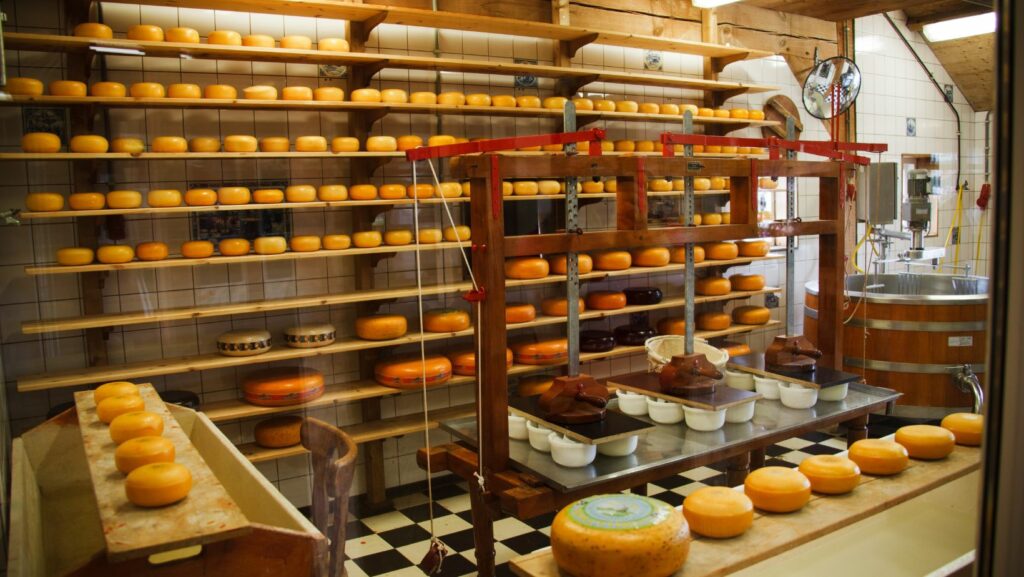Food Industry Trends

The food industry is constantly evolving, driven by changing consumer preferences, technological advancements, and global events. Staying ahead of the latest trends is crucial for businesses looking to thrive in this competitive landscape. From plant-based alternatives to sustainable packaging solutions, the industry is witnessing a shift towards more conscious consumer choices. Understanding these trends can help businesses adapt their strategies and offerings to meet the demands of today’s market. As the food industry continues to innovate and respond to changing needs, staying informed about the latest trends is key to success.
Evolving consumer preferences, technological advancements, and global events are reshaping the food industry landscape. Staying abreast of the latest trends is crucial for businesses seeking to excel in this competitive environment. The industry is witnessing a notable movement towards plant-based alternatives and sustainable packaging solutions, mirroring the growing trend of conscious consumerism. Adapting strategies and product offerings to align with these evolving preferences is essential for companies aiming to thrive in today’s dynamic market, characterized by continuous innovation and responsiveness to changing consumer needs.
Technological Advancements in Food Production
Incorporating Cutting-Edge Tech in Food Manufacturing

The integration of technology in food production processes has revolutionized the industry, enhancing efficiency, quality, and sustainability. From automated systems streamlining manufacturing to advanced packaging solutions prolonging shelf life, technological advancements play a pivotal role in modern food production. Robotics and automation, for instance, have significantly optimized repetitive tasks, ensuring consistency and precision in food processing. These innovations not only boost productivity but also ensure strict adherence to food safety standards, meeting the growing demands of discerning consumers.
Embracing Data Analytics for Enhanced Operations
Data analytics has emerged as a game-changer in the food industry, providing invaluable insights into consumer preferences, market trends, and supply chain optimization. Utilizing big data allows companies to forecast demand more accurately, minimize waste, and tailor product development to meet evolving consumer needs. This data-driven approach empowers businesses to make strategic decisions, optimize production processes, and enhance overall operational efficiency. By leveraging the power of data analytics, food manufacturers can stay agile in a competitive market landscape and deliver products that resonate with their target audience.
Sustainability Practices in the Food Industry
Sustainability practices in the food industry are crucial for companies looking to minimize their environmental impact and meet the growing demand for eco-friendly products. Embracing sustainable approaches not only benefits the planet but also resonates with a conscious consumer base increasingly prioritizing green initiatives.
- Energy-Efficient Operations
- Implementing energy-efficient practices, such as optimizing manufacturing processes and utilizing renewable energy sources, can significantly reduce carbon footprints. By incorporating solar panels or wind turbines, food manufacturers can lower energy costs while decreasing reliance on non-renewable resources.
- Waste Reduction Strategies
- Adopting waste reduction strategies like composting organic waste and utilizing biodegradable packaging materials can mitigate environmental harm. Companies can also explore partnerships with food banks or donation programs to redirect excess food to those in need, contributing to both sustainability and social responsibility.
- Local and Organic Sourcing
- Opting for local and organic sourcing not only supports nearby farmers and reduces transportation emissions but also ensures fresher, healthier ingredients for consumers. By prioritizing regional suppliers and organic farming practices, food businesses can enhance the quality of their products while promoting sustainability.
- Water Conservation Initiatives
- Implementing water conservation initiatives, such as drip irrigation systems and wastewater recycling, can help minimize water usage in food production. By reducing water wastage and enhancing efficiency in irrigation practices, companies play a pivotal role in preserving freshwater resources and operating more sustainably.
- Certifications and Standards

- Obtaining certifications like Fair Trade, USDA Organic, or B Corporation demonstrates a commitment to sustainable and ethical business practices. Adhering to stringent sustainability standards not only builds consumer trust but also positions companies as industry leaders in promoting environmentally conscious initiatives.
Incorporating sustainable practices in the food industry is not just a trend but a necessity in today’s environmentally aware landscape. By prioritizing sustainability across their operations, food businesses can differentiate themselves, attract a loyal customer base, and contribute positively to the planet’s well-being.

